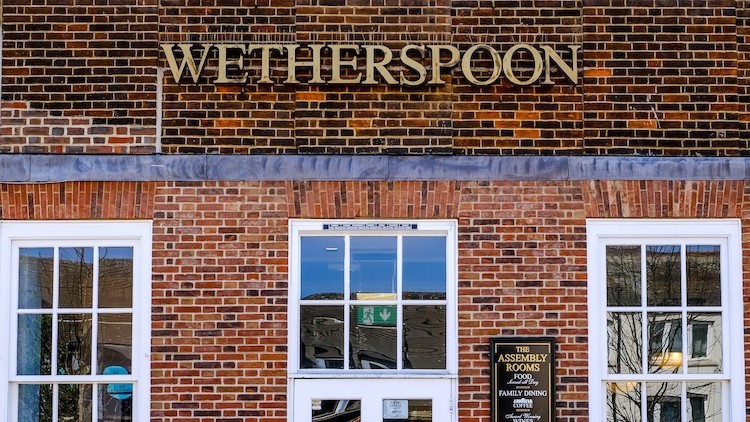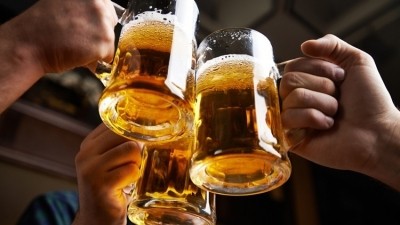Wetherspoon reports ‘more normal trading patterns’

The group made a loss before tax of £21.3m, as a result of Covid restrictions and absences.
During the half year period, like-for-like sales decreased by 11.8%. Like-for-like bar sales were down by 12.7%, while food sales were down 11.1%. Hotel room sales increased by 6.6%.
However, in the most recent three-week period to 13 March 2022, sales have improved and were 2.6% lower than the equivalent period in 2019.
Cash sales per week during this three-week period have been approximately 10% above the depressed levels of December 2021, indicating an improving trend.
The company opened four pubs during the six months and sold or closed six, resulting in a trading estate of 859 pubs at the half year end.
Tim Martin, chairman of J D Wetherspoon, said: “Following a traumatic two years for many businesses and people, the ending of Covid restrictions has brought a return to more normal trading patterns in recent weeks.
“Contrary to some reports, the company has a full complement of staff and is fully stocked, with some minor exceptions.”
Martin said Wetherspoon was less exposed to property inflation, with nearly 70% of its pubs freehold, with interest rates fixed for the next decade.
Meanwhile, most of the company’s leasehold pubs have rent reviews which are fixed at levels below the current level of inflation.
Pressure on food, drink and energy costs is mitigated to an extent by a number of long-term contracts. Overall, the company expects the increase in input prices to be slightly less than the level of inflation.
Martin said the Government’s money printing to fund £400bn in Covid measures had caused rampant inflation and rising taxes.
“The company is confident of a strong future if restrictions are avoided,” he added. “The readiness of the leaders of all the UK’s main political parties to resort to lockdowns, and extreme restrictions, which were not contemplated in the UK’s 2019 plans for pandemics, is the main threat to the future of the hospitality industry, but also to the economy.”
Property losses arose from the disposal of four pubs and the closure of two pubs. The disposals resulted in a cash inflow of £2.1m.
Total capital investment was £64.7m (2020: £128.5m). £26.6m was invested in new pubs and pub extensions (2020: £23.7m), £18.9m in existing pubs and IT (2020: £34.1m) and £19.2m in freehold reversions of properties where Wetherspoon was the tenant (2020: £70.7m).
As at 23 January 2022, the company’s total net debt, excluding derivatives, was £920.4m (2020: £804.5m), an increase of £115.9m. The half year-end net-debt-to-EBITDA ratio was 25.63 times (2020: 3.54 times).
The company has an agreement with its lenders that waives its debt covenants until October 2022 and replaces them with a minimum liquidity requirement of £75m. At the half-year-end liquidity was £159.1m.















